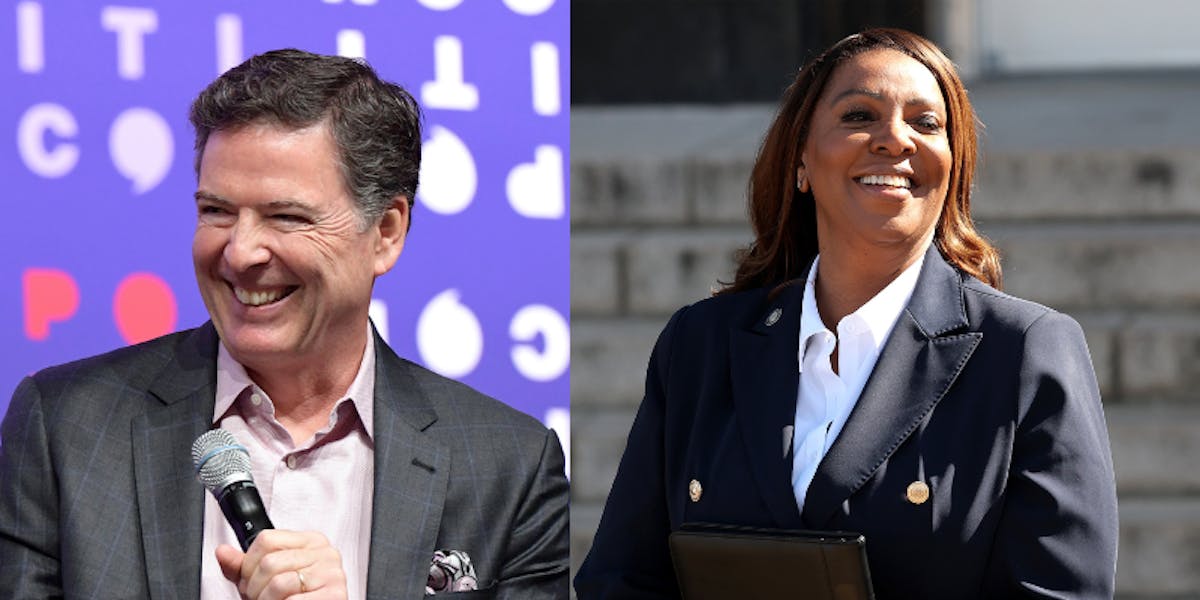
President Donald J. Trump suffered a setback in federal court after a judge rejected his bid to prevent prosecutions involving former FBI Director James Comey and New York Attorney General Letitia James. The ruling marks the first significant defeat for Trump in this particular legal challenge and underscores the courts’ willingness to allow ongoing investigations to proceed despite objections from high-profile political figures.
Trump had sought to block both Comey and James from pursuing legal actions that, according to his legal team, were politically motivated and constituted an abuse of prosecutorial discretion. The filings argued that the investigations were intended to harass Trump and his associates and that his constitutional rights were being infringed.
The federal judge, however, found the claims unpersuasive and emphasized that the legal system allows investigations and prosecutions to continue so long as they adhere to statutory and constitutional limits. The court’s ruling clarified that merely asserting political bias or disagreement with prosecutorial priorities does not automatically warrant a stay or dismissal.
This decision carries implications for multiple ongoing investigations involving Trump. By denying the injunction, the court effectively permits Letitia James’ civil inquiry into Trump’s business practices and related financial matters to continue unimpeded. Likewise, any legal actions or inquiries involving Comey, particularly those connected to the FBI’s handling of classified or high-profile investigations, are allowed to move forward.
Legal analysts note that the ruling may set a precedent for future cases in which President Trump attempts to block investigations by claiming political targeting. “The court is signaling that allegations of bias, without compelling evidence of legal wrongdoing, are insufficient to halt an investigation,” said a constitutional law expert. “This is a notable first round loss for Trump’s legal strategy.”
Trump’s legal team has signaled that they may appeal the decision, seeking a higher court review that could temporarily pause or influence the proceedings. Appeals in such cases can take months, leaving investigations in a state of uncertainty, but the denial at the trial court level emphasizes the judiciary’s current stance.
Political commentators have suggested that the ruling could have wider implications beyond the legal sphere. By allowing the prosecutions to continue, courts maintain the integrity of ongoing oversight and investigative processes, signaling that even presidents are subject to legal scrutiny.
For supporters of Trump, the ruling is a political blow that reinforces narratives of legal vulnerability and judicial opposition. For critics and observers, it represents a reinforcement of accountability mechanisms, ensuring that investigations proceed according to law rather than political convenience.
As the cases move forward, attention will focus on how Trump’s team responds, whether appeals are filed, and how the investigations unfold. While this is just the first round in what may be a lengthy legal saga, it sets the tone for future proceedings and underscores the courts’ role in balancing political considerations with the rule of law.
Watch video below :












